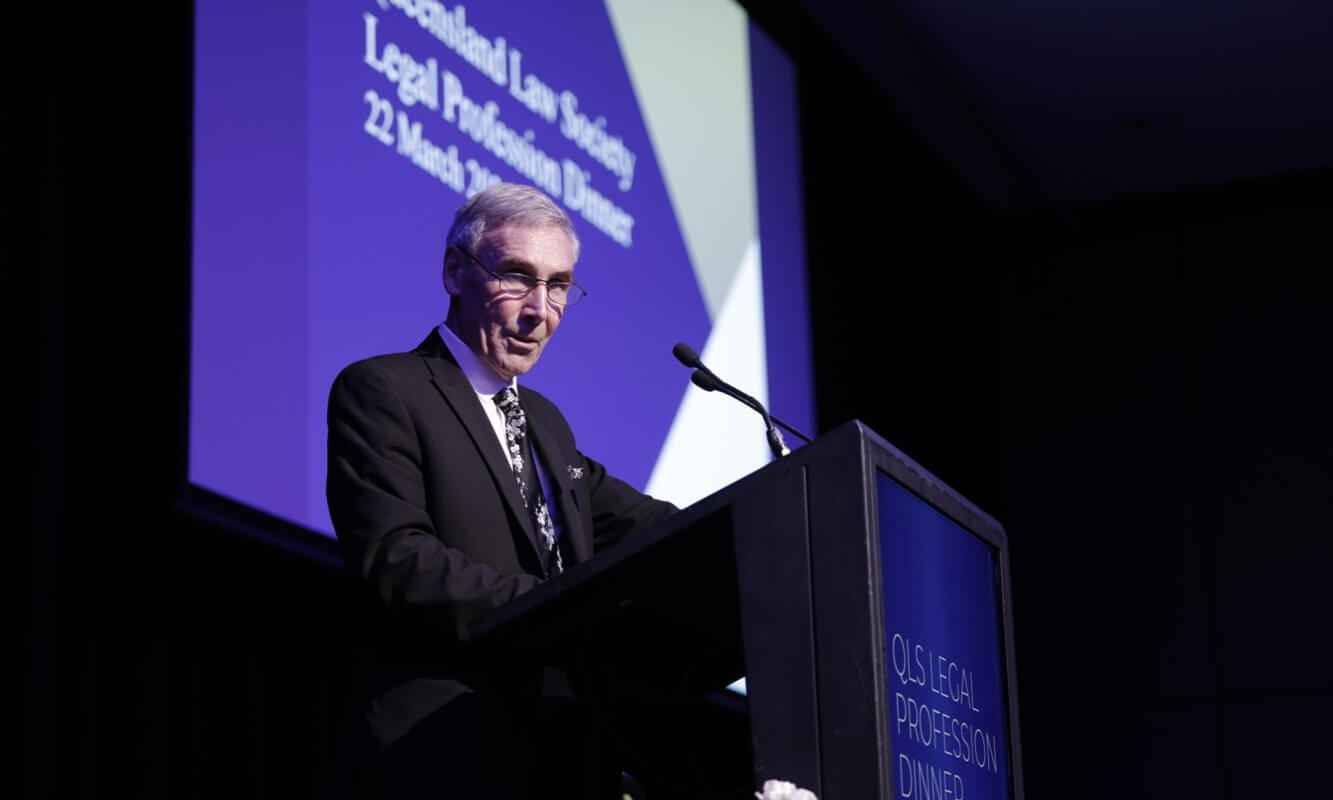1 October marks the International Day of Older Persons, providing an opportunity to raise awareness of the abuse of older persons in our society.
Australia’s demographics – like the rest of the world – reflect an ageing population. In 2017, 15% of Australians (3.6 million people) were aged 65 and over.1 By 2056, the number of older Australians is projected to increase to 22% of the population (or 8.7 million people).2
As the Australian population continues to grow and average life expectancy increases, a higher proportion of older people are likely to develop diminished decision-making capacity, becoming more susceptible to violence, abuse and neglect.
In June 2010, Queensland Law Society (QLS) and Office of the Public Advocate released a joint publication – Elder Abuse: How well does the law in Queensland cope? – that lifted the lid and sparked discussion of law reform in this area of law.
At that time, ‘elder abuse’ was still quite a relatively new topic, both globally and in the Australian context.
More than a decade on, elder abuse remains underreported in all its forms, but much has changed within the legal landscape, with many international, national and state developments having significantly altered the elder abuse response framework.
With these developments in mind, QLS and the Office of the Public Advocate are writing an updated ‘Elder Abuse Joint Issues Paper’.
International responses
Internationally, there has been a shift from a ‘best interests’ approach to a ‘rights-based framework’ in how we respond to elder abuse. For example, momentum has shifted towards support for an international convention on the rights of older persons.
QLS considers that a convention would have the effect of improving visibility and recognition of older persons’ rights, and can be used to champion the cause of creating a strengthening rights-based legislation.
The Law Council of Australia has also recently adopted an in-principle position in support of the development of an international convention on the rights of older persons, and considers it has an important role to play in informing Australia’s own domestic legal and policy frameworks.3
National responses
Traditionally, it has been the responsibility of Australian states and territories to be first responders to elder abuse. More recently, however, national attention on the issue has driven a number of responses at the Federal Government level.
In 2017, the Australian Law Reform Commission (ALRC) released its final report, ‘Elder Abuse – A National Legal Response’, that made 43 recommendations to combat elder abuse in Australia.
Importantly, the ALRC framed its recommendations within a rights-based framework based on two key principles – dignity and autonomy, and protection and safeguarding.4 This framework aims to balance the older person’s right to make decisions about their own life with the need to provide appropriate protections against abuse.
One of the ALRC’s recommendations was the harmonisation of the law relating to enduring powers of attorney (EPOAs) and a national model enduring document, along with the implementation of a national register of EPOAs.
In 2021, the Council of Attorneys-General committed to the introduction of a mandatory national registration scheme for financial EPOAs in an effort to combat financial elder abuse, on the basis that a national register would assist financial and other institutions in identifying revoked or invalid EPOAs.
For Australians, this means they would need to register an EPOA for financial matters on the national register. While this may assist in preventing elder abuse, the law relating to EPOAs differs across Australian states and territories, complicating the implementation of a single, national register. For example, in Queensland EPOAs for financial matters and personal or health matters are contained in the one form.
To that end, QLS is working with other state and territory constituent bodies, as well as the Law Council of Australia, on advocacy for harmonisation of the law relating to enduring documents and a national model enduring document for financial matters.
State responses
At the state level, responses to elder abuse occur across government and non-government organisations.
A significant recent development in the legal landscape was the enactment of the Human Rights Act 2019.
Conduct constituting elder abuse, which can include physical violence, neglect, emotional and psychological abuse, social abuse, sexual abuse and financial abuse, may breach one or more of the rights protected under the Human Rights Act 2019.
For example, the right to freedom from cruel and inhumane treatment may be invoked in response to the unreasonable use of restrictive practices in state-run hospitals or disability accommodation. The right to privacy for older persons includes within institutional care and within reporting regimes, adult guardianship and mental health systems.
Another example is the right to family life, which incorporates the interests of older persons to keep the family unit intact despite care and guardianship arrangements, including provision of services to assist ageing in place, to avoid separating older couples and older persons from family carers.
Additionally, the Queensland Government made important changes to the law underpinning Queensland’s guardianship system in November 2020. These reforms clarify the current powers the Queensland Civil and Administrative Tribunal can exercise and provide additional powers to improve access to redress for victims of financial abuse.
The reforms broaden the protections available to whistle-blowers who disclose confidential information about an adult with impaired capacity and ensure a person is protected if they believe, on reasonable grounds, the information shows an adult has been subject to abuse, neglect or exploitation.
These reforms also provide a discretion to the Public Guardian to investigate a complaint that an adult was subject to abuse, neglect or exploitation even after the death of the adult.
While these developments have significantly advanced responses to elder abuse, there is much to be done by law and policymakers at all levels of government to both prevent elder abuse and assist older people to access the right support services.
QLS continues to advocate for appropriate responses that will prevent the abuse of older persons.
Brooke Thompson is a Queensland Law Society Policy Solicitor.
Footnotes
1 Australian Institute of Health and Welfare, ‘Older Australia at a glance’ (web report, 10 September 2018).
2 Council of Attorneys-General, National Plan to Respond to the Abuse of Older Australians (Elder Abuse) 2019-2023 (8 July 2019).
3 Law Council of Australia, International Convention on the Rights of Older Persons (media release, 9 October 2020).
4 Ibid 50 [2.83].









One Response
judyjensen15@outlook.com.au
Exactly what Rights does an older person in Queensland have?
Does Q CAT consider all angles of a complaint?
Is Q CAT made up of all solicitors???